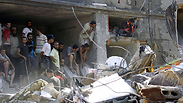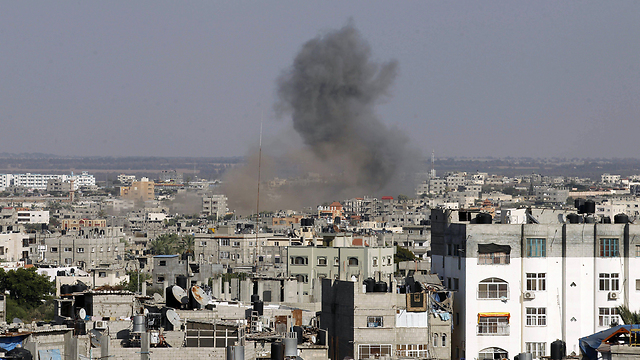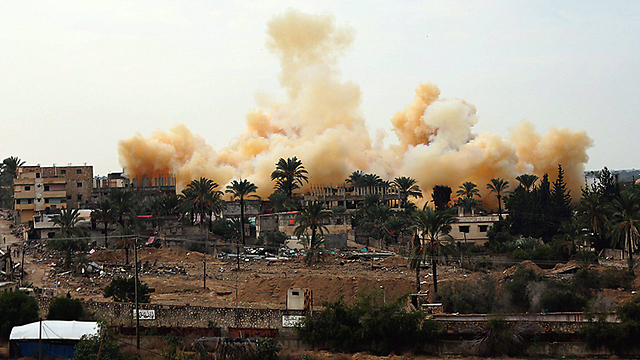
Work to rehabilitate the Gaza Strip is set to expand next week, coinciding with the complete isolation of the Strip after Egypt shut the Rafah Crossing in light of a further deterioration in relations between the Egyptian government and Hamas.
UN Special envoy Robert Serry announced on Saturday that under the trilateral agreement between Israel, the Palestinian Authority and the UN, signed in September, widespread rebuilding efforts will begin within the next several days.
In September, Israel agreed to a proposal to establish a mechanism for reconstructing the Strip after Operation Protective Edge, under the supervision and control of the United Nations.
According to the IDF, the mechanism would allow for progress on rebuilding the strip on one hand, while maintaining Israel's security interests on the other.
The mechanism was approved by the political establishment in Israel after coordination between the UN envoy to the Middle East Robert Serry, Palestinian Prime Minister Rami Hamdallah, and COGAT Maj. Gen. Yoav Mordechai.
Next week, the monitoring systems overseeing the building materials entering the Strip will be activated, keeping watch with the use of GPS tracking over the sources receiving the materials. Access to the computerized system will be open to Israel, monitoring sources within the Palestinians government and to the UN.
In addition, significant amounts of construction materials will enter Gaza, including cement and heavy machinery used for rebuilding efforts. International inspectors who will ensure that the materials are used solely for their intended civilian purpose are already in the Gaza Strip. Additional inspectors will arrive within the next several days.
Serry announced that as part of the first stage, around 25,000 people whose homes were destroyed during the military operation will be able to access construction materials to rebuild their damaged homes, before the beginning of winter. Palestinian and Israeli sources confirmed the details.
The UN envoy reportedly criticized the fact that countries that pledged to donate money for the construction of the Gaza Strip at the international donors conference in Cairo did not do so yet, and urged them to transfer the funds as quickly as possible.
The widespread construction in Gaza will be underway while the Strip will be left completely isolated after Egypt's closure of the Rafah Crossing, following the continuing decline of relations between Hamas and Egypt.
On Saturday, the Palestinian Ma'an News Agency reported that the Egyptian army completed its clearing of the border area as part of preparations to implement a 500-meter (550-yard) buffer zone along Egypt's 13-kilometer (8-mile) border with Gaza.
According to the report, troops demolished about 800 houses in the area, erasing in the process entire neighborhoods such as Rafah's Saladin and others. In recent days, reports emerged that the Egyptian army intends to double the depth of a security buffer zone.
"A decision was taken to increase the buffer zone along the border in Rafah to one kilometer. The decision... came after the discovery of underground tunnels with a total length of 800 to 1,000 meters," the state MENA news agency said.
Residents of Sinai, who complain they have long been neglected by the state, say they rely on smuggling trade through the tunnels for their living and the creation of the buffer zone has stoked resentment. Egyptian authorities see them as a threat and regularly destroy them.
Militant violence in Sinai has surged since the army ousted Morsi, a Brotherhood official in July 2013. Egypt has launched a crackdown on the group, jailing thousands of its members and labeling it a terrorist organization.

















